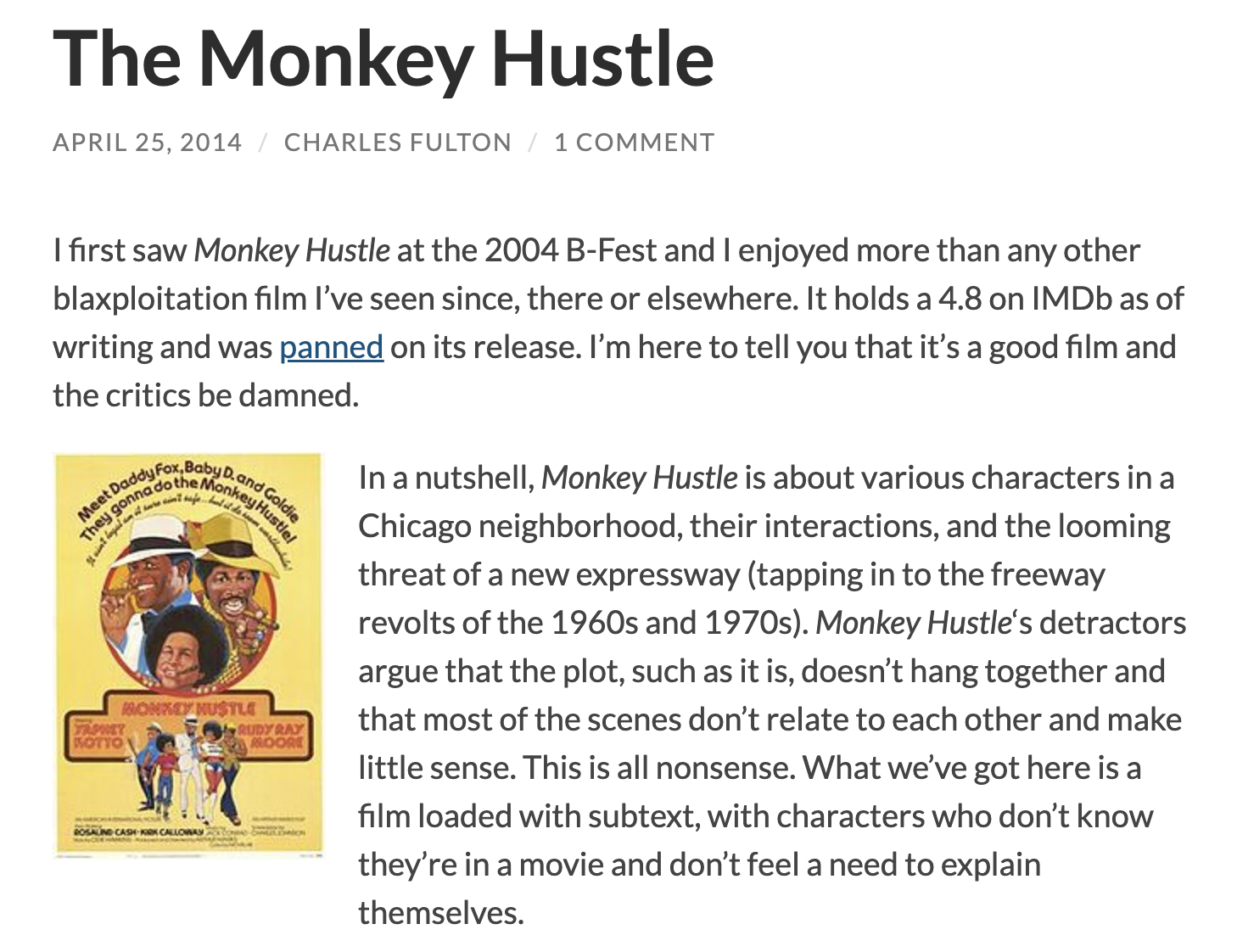
Within the circle of people Liz and I knew through B-Fest at Northwestern University, Gymkata was somewhat legendary despite being a comparatively recent film (1985). For my part, I always have a soft spot in my heart for that very specific sort of 1980s film that doesn’t quite exist in the real world yet isn’t magical realism either. Films in the 1980s were allowed to be weird.
Gymkata was shown at the 2010 festival, allegedly at 9:15 PM, after Heartbeeps. I’m in no position to quibble, but that’s early for me to fall asleep halfway through, and I remember Hard Ticket to Hawaii and (ugh) Sextette. During a 24-hour film festival your brain enters a liminal state and you’ll believe all kinds of things. You’ll think Beastmaster and Krull are the same movie, and wonder (during Krull) when the hell Rip Torn is coming back. Bottom line, I nodded off at points and maintained for years afterwards that I’d missed the main part of the film.
Having now watched Gymkata in a wakeful state, with the full benefit of my faculties…no, I didn’t miss all the much in 2010. It’s just that much of an incoherent mess. Robert Clouse directed, and there are similarities to his earlier (and far better) Enter the Dragon. The plot is this: it’s 1985, the United States is building SDI (“Star Wars”), and we want to install a satellite ground station in the fictional country of Parmistan, somewhere in the Hindu Kush. The Soviet Union is never mentioned. The country is closed to foreigners; all who enter Parmistan must compete in “the game”, which is a weird combination of the Barkley Marathons and a battle royale. Succeed, and your life is spared and you gain any wish within the power of Parmistan’s ruler.
